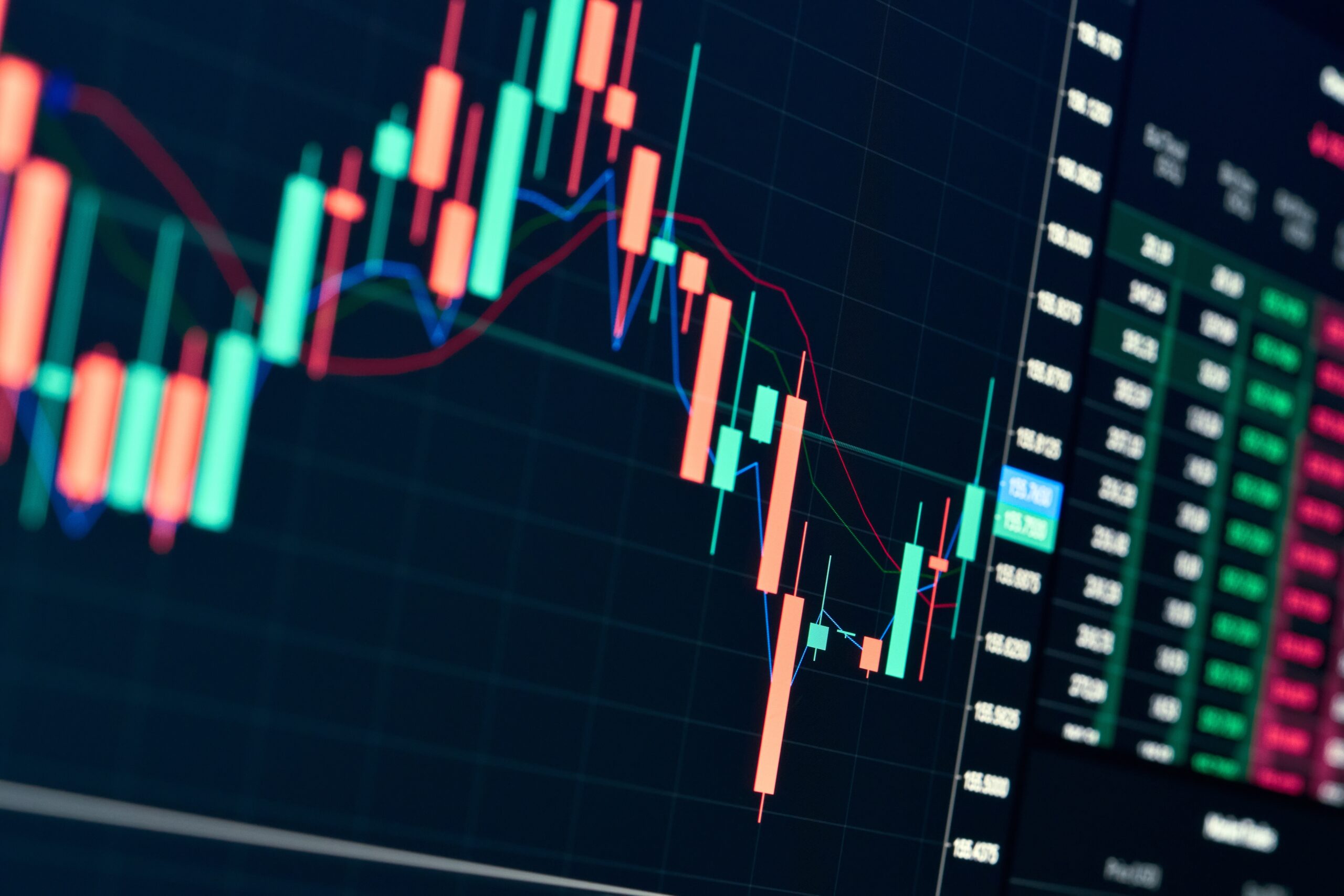In today’s rapidly evolving world, it’s easy to miss the subtle economic cues that signal future challenges. With fluctuating markets, political unrest, and technological advancements, the economic landscape can be both unpredictable and daunting. However, by staying informed, we can make better financial decisions and shield ourselves from potential pitfalls. Here are thirteen economic warning signs that Americans need to stop ignoring and how to start acting on them. Let’s dive in!
1. The Increasing National Debt is More Than Just Numbers

It’s no secret that the national debt is growing, but do you know what it means for you? According to the U.S. Department of the Treasury, the national debt is now over $30 trillion and counting. This colossal figure isn’t just a number; it reflects potential future taxation increases and interest rate hikes. As debt grows, the government’s ability to spend on essential services may shrink, leading to reductions in benefits and public services.
The ripple effect can touch everything from education to infrastructure, influencing the economy’s overall health. To act on this, consider advocating for fiscal responsibility and staying informed about government spending policies. Voting in elections and contacting your local representatives can amplify your voice and influence change. Remember, understanding the national debt’s impact is the first step toward protecting your future.
2. Inflation is More Than Just Rising Prices

We’ve all felt the pinch of inflation at the grocery store, but its effects run deeper than just higher prices. Inflation diminishes your purchasing power, meaning your dollar doesn’t stretch as far as it used to. This economic trend can erode savings, making it harder to achieve long-term financial goals. According to the Bureau of Labor Statistics, inflation rates have risen significantly over the past year.
To combat this, consider investing in assets that traditionally outpace inflation, such as real estate or stocks. Diversifying your investments can help protect your wealth against inflationary pressures. Additionally, budgeting with an eye toward future price increases can safeguard your financial health. Inflation doesn’t have to derail your financial plans if you stay proactive and informed.
3. The Job Market is Changing, Are You?

Job stability isn’t what it used to be, and the employment landscape is continually evolving. With technological advancements like automation and AI, some jobs are becoming obsolete, while new roles are emerging. According to the World Economic Forum, millions of jobs could be displaced by technology in the next few years. This shift requires workers to adapt by acquiring new skills and embracing lifelong learning.
Investing in education and training can help you stay competitive in this dynamic job market. Whether it’s enrolling in online courses or attending workshops, staying ahead of industry trends is crucial. Networking and maintaining professional relationships can also open doors to new opportunities. Remember, adaptability is key in a changing job market, and proactive actions can secure your career future.
4. Housing Market Woes and What They Mean for You

The housing market has been a rollercoaster in recent years, leaving many to wonder if they should buy, sell, or hold. High demand and limited supply have driven home prices sky-high, making it tough for first-time buyers to enter the market. While this might seem like a seller’s dream, there’s a downside: affordability issues and potential bubbles. If prices are unsustainable, they could lead to a market correction that might affect homeowners and investors alike.
If you’re considering buying, ensure you understand the local market dynamics and have a solid financial plan. Those looking to sell should weigh the benefits against potential future gains. Whether you’re buying, selling, or holding, staying informed about market trends is essential to making the best decision for your situation.
5. The Looming Retirement Crisis: Are You Prepared?

With longer life expectancies and rising healthcare costs, many Americans are facing a looming retirement crisis. The traditional three-legged stool of retirement income—Social Security, pensions, and personal savings—is becoming wobbly. Many pensions are underfunded, and Social Security faces its own financial challenges. It’s crucial to assess your retirement plans early and consider boosting your savings rate to ensure a comfortable retirement.
Investing in diverse asset classes and considering options like annuities could help secure future income streams. Keep in mind that healthcare will likely be a significant expense in retirement. Exploring health savings accounts (HSAs) and long-term care insurance can protect you against unforeseen expenses. Start planning today to sidestep the retirement crisis many Americans might face.
6. Student Loan Debt: A Burgeoning Problem

Student loan debt has ballooned to over $1.7 trillion, impacting millions of Americans’ financial futures. This staggering amount not only burdens young graduates but also affects their ability to buy homes or start families. With interest rates compounding, many find it challenging to pay down the principal balance. If you’re grappling with student loans, consider strategies like refinancing or exploring income-driven repayment plans.
It’s also wise to educate younger generations on the importance of understanding loan terms and borrowing limits before college. Parents and students should discuss potential return on investment for chosen degrees and career paths. By addressing this issue head-on, you can reduce the stress and financial strain that student loans can impose. Remember, understanding your debt is the first step toward managing it effectively.
7. The Rise of Gig Economy: Opportunity or Threat?

The gig economy is booming, offering flexibility and independence for workers, but it also presents unique challenges. Without the traditional safety nets like health insurance and retirement benefits, gig workers face increased financial risks. This shift signifies a broader trend in employment where job security is less assured.
If you’re part of the gig economy, it’s crucial to create your own financial safety nets. This means prioritizing savings, securing adequate health insurance, and planning for retirement. Consider setting up a solo 401(k) or IRA to build your retirement nest egg. Balancing multiple gigs can offer financial rewards, but it requires diligent financial planning. By taking charge of your finances, you can turn gig work into a sustainable career path.
8. Health Care Costs: A Growing Concern

The rising cost of healthcare is a significant concern for many Americans, with premiums and out-of-pocket expenses climbing each year. This financial burden can lead to difficult choices, such as delaying care or avoiding treatment altogether. Understanding your health insurance options is crucial in mitigating these costs. For those with employer-sponsored insurance, reviewing plan options during open enrollment can ensure you have the right coverage.
Consider utilizing health savings accounts (HSAs) to save for medical expenses tax-free. Educating yourself about preventative care options can also help reduce long-term healthcare expenses. With healthcare costs showing no signs of slowing, proactive planning and informed choices are essential for maintaining financial health.
9. Credit Card Debt: A Ticking Time Bomb

Credit card debt remains a significant issue for many Americans, with the average household carrying thousands in balances. High-interest rates can quickly spiral manageable debt into overwhelming financial stress. If you’re struggling with credit card debt, it’s important to take action to regain control. Start by creating a budget to track spending and identify areas to cut back.
Focus on paying down high-interest cards first while maintaining minimum payments on others. Consider transferring balances to lower-interest cards or consolidating debt through personal loans. Building an emergency fund can prevent future reliance on credit cards in times of unexpected expenses. Remember, tackling credit card debt is a journey, and every step you take moves you closer to financial freedom.
10. Cybersecurity Threats: Protecting Your Financial Data

In our increasingly digital world, cybersecurity threats are a growing concern for individuals and businesses alike. Data breaches and identity theft can wreak havoc on your finances, leading to unauthorized transactions and damaged credit. Staying vigilant about online security is crucial in protecting your financial information. Use strong, unique passwords for all accounts and enable two-factor authentication wherever possible.
Regularly monitor your credit reports and financial statements to spot suspicious activity early. Educating yourself about phishing scams and other cyber threats can prevent costly mistakes. Investing in identity theft protection services can provide an added layer of security. By taking these precautions, you can safeguard your financial future from cyber threats.
11. Environmental Risks: Economic Implications

Climate change and environmental risks are increasingly affecting economies worldwide, and the U.S. is no exception. Natural disasters, rising sea levels, and extreme weather events can disrupt supply chains and damage infrastructure. These environmental challenges can lead to increased costs for businesses and consumers alike. Investing in sustainable practices and technologies can mitigate some of these risks.
Consider supporting companies that prioritize environmental responsibility in their operations. As an individual, reducing your carbon footprint can contribute to broader efforts to combat climate change. Staying informed about environmental policies and their economic impacts can help you make more sustainable financial decisions. By understanding the link between environmental risks and the economy, you can be better prepared for future challenges.
12. Global Economic Trends: What They Mean for the U.S.

Global economic trends, such as trade tensions and international conflicts, can have significant implications for the U.S. economy. These events can affect everything from stock market performance to the cost of goods and services. Staying informed about global economic news can help you anticipate potential impacts on your finances. Diversifying your investment portfolio can protect against international volatility.
Consider consulting with a financial advisor to navigate complex global economic landscapes. Understanding foreign exchange rates and their influence on imports and exports is also crucial. By recognizing global economic trends, you can make informed decisions to enhance your financial stability. Remember, in an interconnected world, global events can ripple through local economies, affecting your financial well-being.
13. The Importance of Financial Literacy

Financial literacy is a cornerstone of economic well-being, yet many Americans lack the knowledge needed to make informed financial decisions. Understanding basic financial concepts, such as budgeting, saving, and investing, is crucial in navigating today’s complex economic landscape. Enhancing your financial literacy can empower you to make better financial choices and avoid common pitfalls.
Take advantage of resources like online courses, books, and workshops to expand your financial knowledge. Encourage financial education for younger generations to equip them with essential skills for the future. By prioritizing financial literacy, you can build a solid foundation for personal and economic success. Remember, knowledge is power, and increasing your financial awareness can lead to a more secure future.
This article is for informational purposes only and should not be construed as financial advice. Consult a financial professional before making investment or other financial decisions. The author and publisher make no warranties of any kind.








